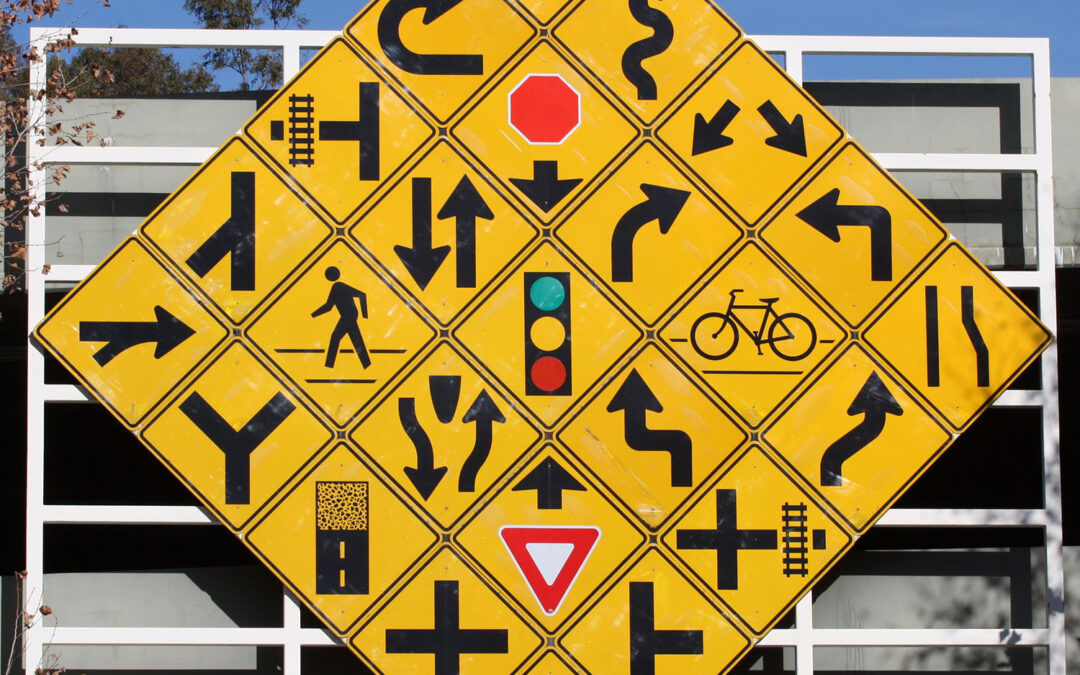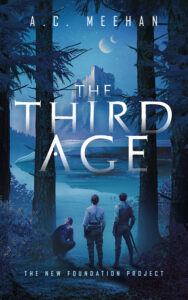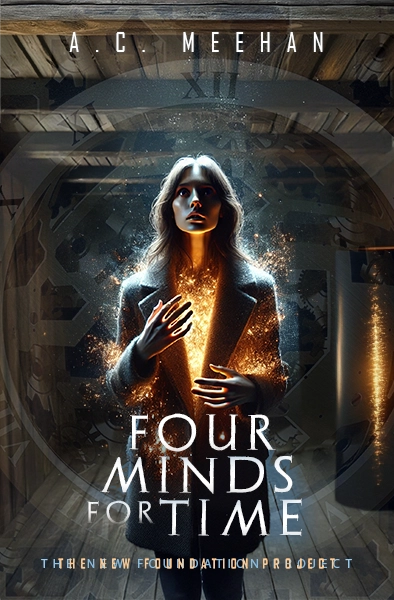I’ve been in the car a lot lately. In fact, almost all of my writing time has been spent driving. I always hope that those hours in the car could be good thinking time for fiction planning, but they just aren’t. Deep thinking and hurtling along a road at seventy miles an hour just don’t belong together.
Recently I was thinking about the British English “full stop” compared to the American English “period.” “Full stop” to my ears is a cessation. “Period” is a phase. In both cases, there’s an end—but period seems to leave more room for expectation. Having finished one period of thought (or words), you get ready to begin the next. This distinction has nothing to do with actual grammar rules, of course.
So here’s how these things came together as today’s whimsy. Road signs and traffic instructions struck me as punctuation for drivers. I amused myself for quite a while with this. Some of them are stronger than others, and I didn’t get a match for everything, so this may bring me more entertainment on future road trips.
Stop Sign = Period/Full Stop You reach an intersection. You come to a complete stop. (Every. single. time. Of course, Officer.) Then you start the next phase of your journey, or the next sentence. There could be an actual turn, which is kind of like a paragraph break.
You reach an intersection. You come to a complete stop. (Every. single. time. Of course, Officer.) Then you start the next phase of your journey, or the next sentence. There could be an actual turn, which is kind of like a paragraph break.
Yield = Comma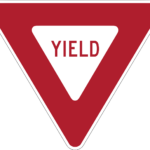 In this case, you come to a place where you aren’t changing direction, really. You just pause, hesitate a little, and then you keep going without friction—and you won’t crash into the main “idea.”
In this case, you come to a place where you aren’t changing direction, really. You just pause, hesitate a little, and then you keep going without friction—and you won’t crash into the main “idea.”
.
Bridge Ices Before Road = Question Mark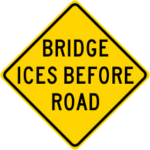 Lots of options for this one, but this is the one I landed on, because that particular road sign seems to be all about uncertainty. You have to keep traveling to find out what the situation is, just like a question mark makes you consider the missing information.
Lots of options for this one, but this is the one I landed on, because that particular road sign seems to be all about uncertainty. You have to keep traveling to find out what the situation is, just like a question mark makes you consider the missing information.
Emergency Stop Light = Exclamation Mark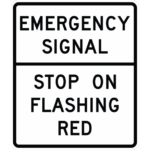 The light in front of a fire station, the one that only comes on when the first responders are rushing to the scene. Credit for this one goes to a friend, who pointed out that those lights surprise you, make you stop suddenly, and serve a very specific purpose.
The light in front of a fire station, the one that only comes on when the first responders are rushing to the scene. Credit for this one goes to a friend, who pointed out that those lights surprise you, make you stop suddenly, and serve a very specific purpose.
Flashing Yellow Light at Intersection = Semicolon![]() You come to an intersection; since you’re on the more significant road, you slow down to understand what traffic is doing, and then you go on.
You come to an intersection; since you’re on the more significant road, you slow down to understand what traffic is doing, and then you go on.
Flashing Red Light at Intersection = Colon
You have to stop, even though you can see that traffic on the intersecting road has nothing to do with you.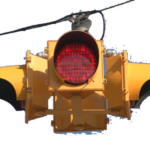
Bridge Out, Exit Closed, or Road Closed = Interrobang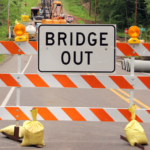 It’s not quite clear what you’re supposed to do about it, but you have a forceful reason to come to a stop. It probably means you’ll be taking a route you didn’t expect.
It’s not quite clear what you’re supposed to do about it, but you have a forceful reason to come to a stop. It probably means you’ll be taking a route you didn’t expect.
Exit = Periods of Ellipsis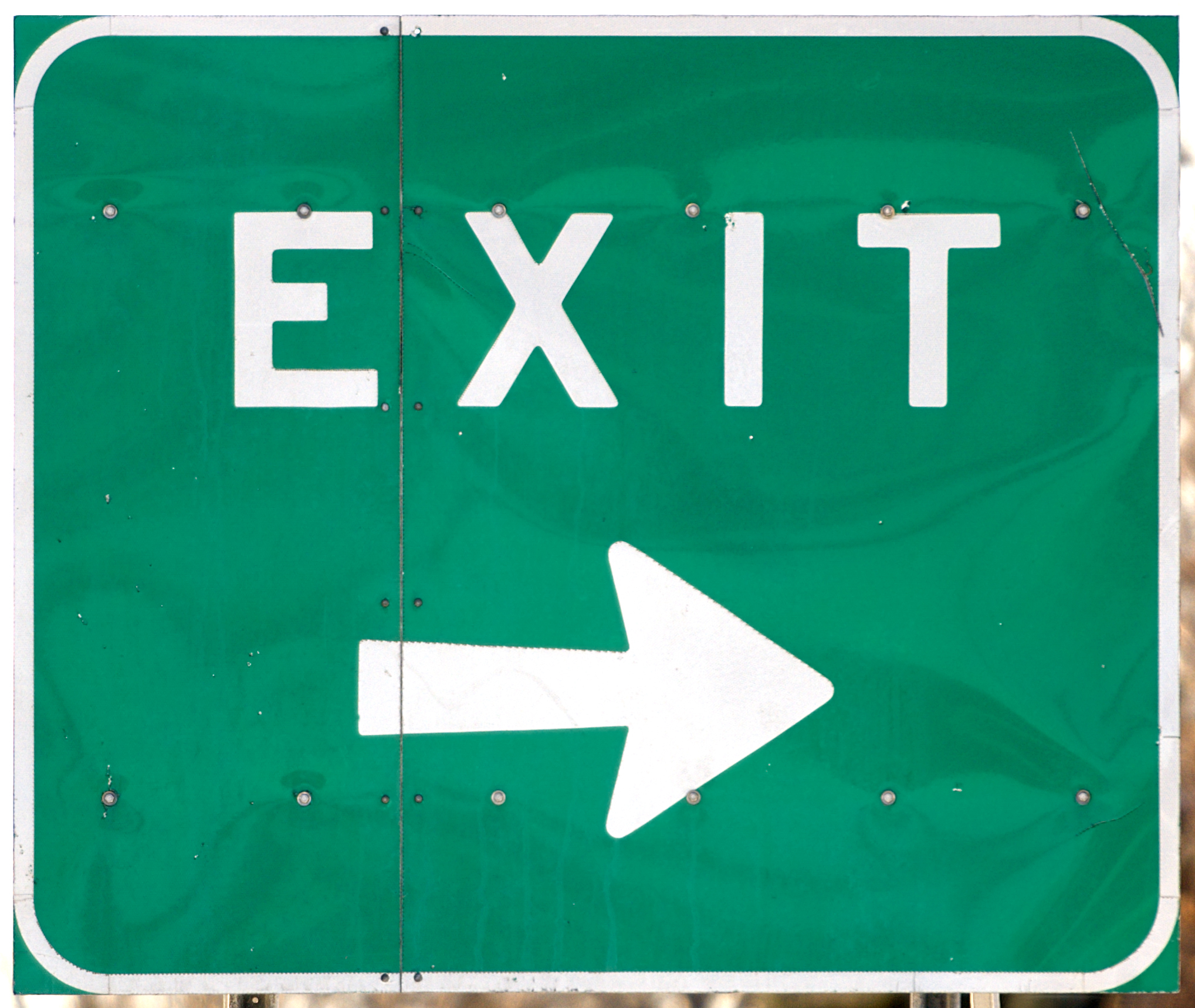 You’re leaving the main roadway (or thought) but your car is still moving…
You’re leaving the main roadway (or thought) but your car is still moving…
Road Work = Em Dash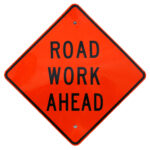 It’s an interruption—a different thought or traffic pattern—but you stay on the same road.
It’s an interruption—a different thought or traffic pattern—but you stay on the same road.
Draw Bridge Ahead = Hyphen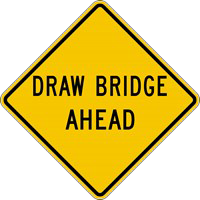 Without the hyphen, the two sides wouldn’t be connected. The hyphen, like a bridge, links distinct things into one idea.
Without the hyphen, the two sides wouldn’t be connected. The hyphen, like a bridge, links distinct things into one idea.
Pedestrian = Quotation Marks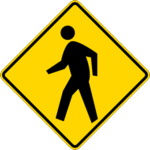 “Pay attention. There are people around.”
“Pay attention. There are people around.”
I desperately want to find the punctuation analogy for a roundabout, and I also wasn’t sure what matched the apostrophe, so there are at least two unresolved amusements for my next road trip!

